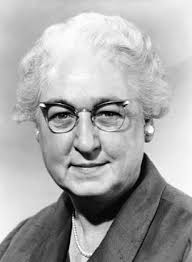Event News
10 Most Influential Doctors in the World

In a well-functioning society, the preservation and restoration of health are tantamount to the quality of life and the economic growth of its people. Hence, the importance of medical practitioners in our society is highly regarded.
Below is a list of the ten most influential physicians who, through research, hard work, dedication, and innovation, changed the world of medicine — as we know it.

1. Georges Mathé, MD: Discovered treatment for leukaemia
In preclinical studies of a bone marrow transplant, Dr. Mathé proved that donor cells survived and replicated only in recipients that were first irradiated to neutralize their immune system.
In 1958, many Yugoslavian physicists were exposed to radiation during a nuclear accident. Dr. Mathé infused them with donor marrow and saved all except one from radiation poisoning.
Dr. Mathé discovered the cure for Leukaemia and even cured a patient with a bone marrow transplant. He also defined graft-versus-host disease by deducing that the condition was a result of an immune reaction in the donor marrow against the autologous cells of the patient.
 2. Sir Alexander Fleming, MD: Discovered penicillin
2. Sir Alexander Fleming, MD: Discovered penicillin
Sir Alexander Fleming served as a captain in the Army Medical Corps in World War 1. Born on August 6, 1881, in Ayrshire, Scotland, he picked up an interest in the natural bactericidal characteristics of antiseptics and blood. He discovered the bacteriolytic substance lysozyme in the tissue and secretions. In 1928, while he was studying the influenza virus, he discovered Penicillin.
His discovery of Penicillin happened by accident. It so happened that he had left a staphylococcus culture on a plate and later saw that mold had developed on the culture. The mold created a bacteria-free circle around it. As he studied the culture further, Dr. Fleming found that it could prevent the growth of staphylococci. So it became part of the Penicillium notatum family.
 3. Helen Brooke Taussig, MD: A pioneer in pediatric cardiology
3. Helen Brooke Taussig, MD: A pioneer in pediatric cardiology
Dr. Helen Brooke was known as the founder of the field of Pediatric Cardiology. Her work, a seminar on Congenital Malformations of the Heart, was published in 1947. Dr. Helen developed the concept of the Blalock-Thomas-Taussig shunt procedure, which helps to extend the survival of children born with tetralogy of Fallot.
Dr. Helen was also famous for banning thalidomide, which caused deformities in infants whose mothers took the drug during pregnancy. She also helped to promote the use of x-rays and fluoroscopy together for less invasive checking of the changes in the heart and lungs of kids. Dr. Helen was the first president of the American College of Cardiology.
 4. Charles Richard Drew, MD: Father of the blood bank
4. Charles Richard Drew, MD: Father of the blood bank
Dr. Charles Richard Drew had a particular interest in blood transfusions. He was an African American surgeon and medical researcher. Dr. Charles developed improved blood storage techniques, which were used to design large-scale blood banks. He also developed bloodmobiles, which were trucks with refrigerators of stored blood.
Dr. Charles also improved the technique used to collect blood from patients, ensuring a central location where donors could donate blood. His work became the starting point which later became the American Red Cross Blood Bank.
 5. Michael Ellis DeBakey, MD: Pioneer of cardiovascular surgery
5. Michael Ellis DeBakey, MD: Pioneer of cardiovascular surgery
Dr. DeBakey was one of the first cardiovascular surgeons in the world. He practised for over seven decades and lived up to 99 years. Born on September 7, 1908, Dr. DeBakey performed surgery on over 60,000 patients during his lifetime, including presidents and celebrities.
He developed a component that later became part of the first heart-lung machine in 1932. He created the plastic tubing in the 1950s to prevent a stroke from recurring, kidney failure, and vascular restoration of limbs.
Dr. DeBakey developed innovations that revolutionised cardiovascular procedures and included coronary artery bypass and ventricular assist devices. He also installed the first artificial pump to assist heart damage.
 6. Virginia Apgar, MD: Inventor of the Apgar Score
6. Virginia Apgar, MD: Inventor of the Apgar Score
Dr. Virginia Apgar invented the Apgar Score, which is the first standardised measurement for assessing a newborn’s transition after it leaves the womb.
Her invention was initially rejected but now it is widely used to determine a newborn’s heart rate, respiratory effort, muscle tone, and reflex response.
Dr. Apgar made numerous contributions to obstetrical anaesthesia and showed the association between infant Apgar Score and the effect of labour, delivery, and maternal anaesthesia.
Dr. Apgar also developed new methods to measure blood gases and serum anaesthesia levels with Duncan Holaday, MD and Stanley James, MD. Dr. Apgar was the first woman to attain full professorship at Columbia University College of Physicians and Surgeons, New York.
 7. Helene D. Gayle, MD: HIV/AIDS research, public health
7. Helene D. Gayle, MD: HIV/AIDS research, public health
Dr. Gayle was interested in the effects of AIDS on children, adolescents, and families. She closely studied the global consequences of HIV/AIDS.
She started her career at the CDC as an epidemic intelligence service officer and worked as a physician, researcher, executive, and global caregiver.
Forbes even named her among the “100 Most Powerful Women.”
Dr. Gayle made significant contributions to the study, control, and prevention of HIV/AIDS and Tuberculosis.
She also held several distinguished positions like Assistant Surgeon General and Rear Admiral in the Commissioned Corps of the US Public Health Service.
 8. Edward Jenner, MD, FRS, FRCPE: Discovered vaccinations
8. Edward Jenner, MD, FRS, FRCPE: Discovered vaccinations
Edward Jenner was an English physician who introduced the world’s first vaccine developed for smallpox. He was often referred to as the father of immunology. Dr. Jenner’s work is believed to have saved more lives than the work of any other human.
Dr. Jenner was born on May 17, 1749 in Berkeley, and during his time, smallpox resulted in the death of about 20% of the population. Smallpox was declared eradicated in 1979 by WHO. Thanks to the work of Dr. Jenner.
 9. Elizabeth Blackwell, MD: First female physician in the US
9. Elizabeth Blackwell, MD: First female physician in the US
Elizabeth Blackwell became the first female physician in the United States. Born on February 3, 1821, she encountered many challenges during her medical school days, including discrimination just because she was a woman.
She was always forced to sit separately from the rest of the students and was often excluded from attending certain labs. However, all that did not stop her determination to learn.
Dr. Elizabeth opened her clinic in New York, where she specialised in treating indigent women. She founded the New York Infirmary for Indigent, Women and Children. She also founded the Women’s Medical College of the New York Infirmary in 1868 and helped found the National Health Society, in London, England.
 10. Daniel Hale Williams, MD: First successful open-heart surgeon
10. Daniel Hale Williams, MD: First successful open-heart surgeon
Dr. Dale Hale Williams was the first surgeon to perform a successful open-heart surgery. He was born on January 18, 1856 in Hollidaysburg, PA. As an African American, he had his fair share of hardships and racial biases. Dr. was the first to perform a successful pericardium surgery in the United States to repair a wound.
Dr. Hale founded the Provident Hospital and Training School, Chicago, IL. It was the first non-segregated hospital in the United States and associated nursing school for African Americans. The hospital is now known as the Provident Hospital of Cook County. It was the first hospital in the United States to be owned and managed by African Americans.
In a Nutshell
Since the beginning of time, the profession of a doctor has been one of the most appreciated jobs in the world. Therefore, we remain grateful to the influential doctors mentioned above for their contributions to the betterment of our health care.
You can also contribute to your chosen area of speciality. Study medicine in Malaysia, acquire a Bachelor of Medicine and Surgery degree or higher degrees and contribute to research, innovation, invention, or other ways.

